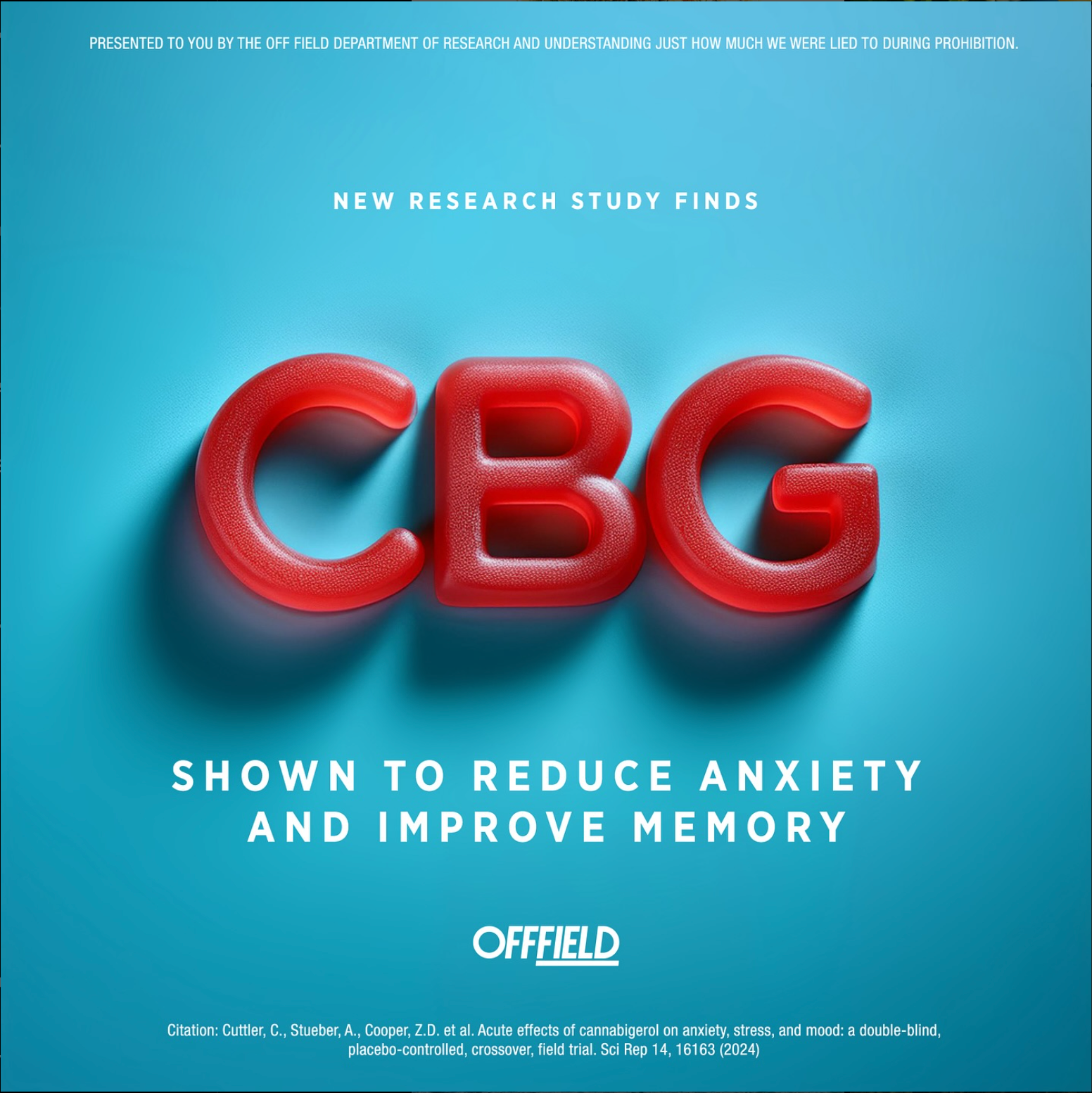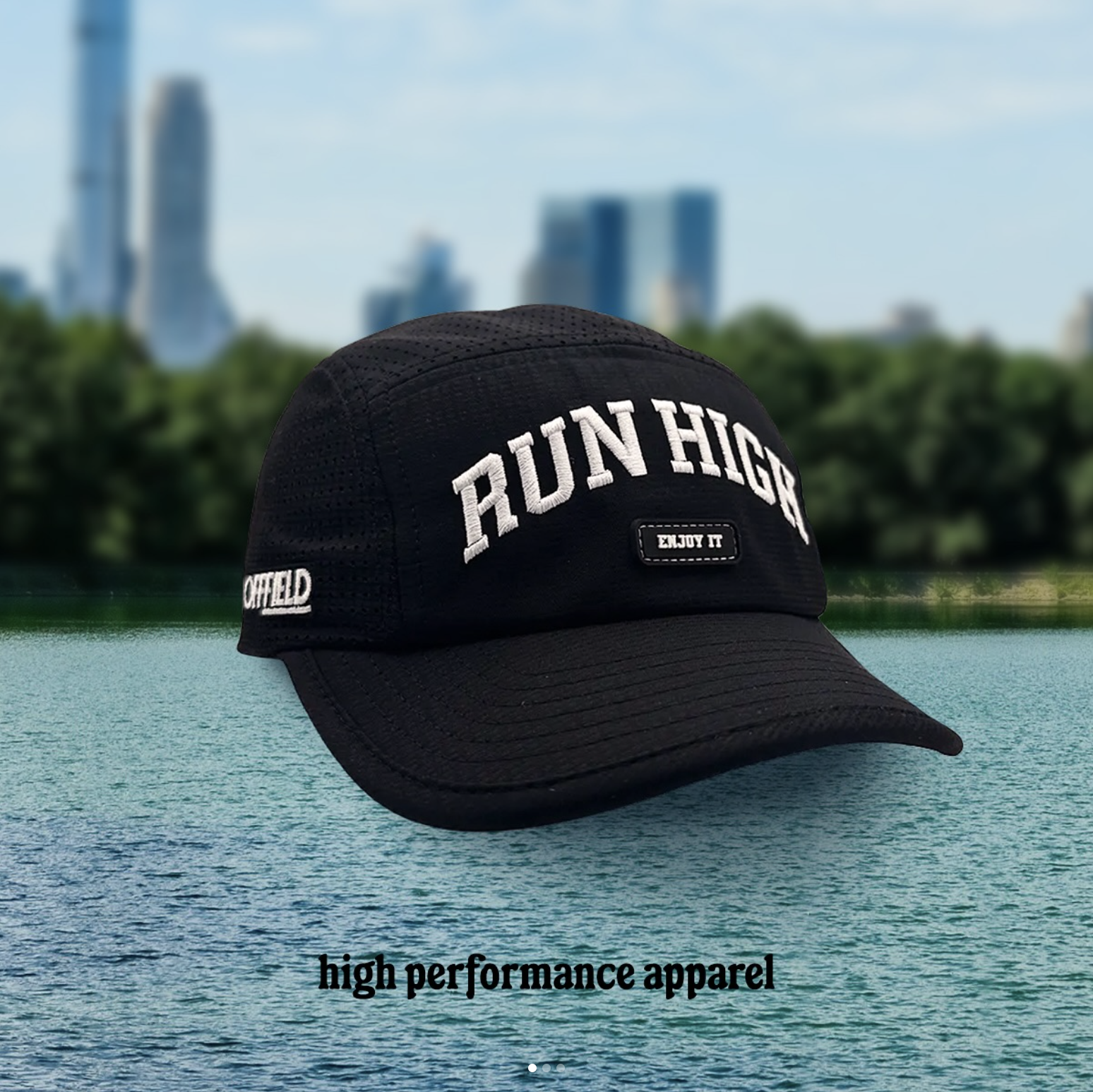RESEARCH
Understanding the runner's high
Advancements in research point to the endocannabinoid system as the cause for giving endurance athletes that euphoric feeling.

Photo: Sherise Van Dyk
November 5, 2024 - Less than 10 min read
Many Americans of a particular generation vividly remember the anti-cannabis ads run on broadcast television during their adolescence. Educators hung posters on school bulletin boards. Cartoon characters taught everyone how to "just say no." The public was told with unquestionable certainty that "marijuana is a gateway drug."
It turns out that gateway might be the finish line of a marathon. The legalization of cannabis research has not only discredited cannabis propaganda but also shined a light on the Endocannabinoid System's involvement in human health and the "Runner's High." Discovered at the end of the 20th century, the Endocannabinoid System has proven to be pivotal in understanding mental and physical health, providing a bounty of holistic and natural solutions to many modern ailments. Now, cannabis has shown to be vital in improving anxiety, inflammation, nausea, joy, pain, and unlocking access to the endocannabinoid system.

A brief history of the Runner's High
In the 1960s, the popularity of running was burgeoning across the country, launching some of the world's biggest brands today, such as Nike and Asics. Researchers began attempting to understand the Runner's High since it entered the pop-culture lexicon.
At first, the data was anecdotal. Runners began sharing their feats of endurance, mentioning an inexplicable and intoxicating experience of euphoria, clarity, calm, and pain relief only after they reached a point where they were about to give up on their run. The mass adoption of running made it clear that the Runner's High was not an isolated event but something many could (and did) experience.
OFF FIELD DEPARTMENT OF PRODUCT PLACEMENT
High Performance Energy Gummies
The best way to hit the runner's high since running shoes were invented.
SELECT QUANTITY
3 Bag Minimum Per Order
MUST BE 21+ TO PURCHASE <0.3% (HEMP-DERIVED)
The term "Runner's High" became the de facto label for the biological effect humans experienced during endurance sports (in retrospect, it is unlikely that it is only a coincidence that the popularity of illicit cannabis use and running took parallel paths in their growth along the same timeline). The effect many runners experienced was often compared to the high cannabis users experienced. Both cheeky and accurate, "Runner's High" stuck as the favorite term for cardio and endurance exercise, even as other activities' popularity also brought their high, including cycling, swimming, weight lifting, rowing, and many others.
No matter the sport, athletes who experienced the Runner's High found it very addicting. People across the country began chasing the high. Although not entirely understood back then, the undisputed truth that exercise is good for your mind and body is prevalent today. The motivation as to why so many became addicted to staying healthy, while others found no purpose in it, was a mystery for some time. That mystery is just now being explained.

Like it or not, we are born to run
When considering the evolutionary theory as to why people experience a Runner's High, today's popular view is that for hundreds-of-thousands of years, humans (specifically Homo Sapiens) developed the ability to run long distances for survival. In short, the flight portion of "fight or flight" meant that when climbing a tree was not enough to get away from a big-cat, the next best thing was to run.
While many predators prevalent in prehistoric times were capable of reaching much faster speeds for short distances, homo-sapiens could run for much longer at a relatively fast pace. The human anatomy evolved to better cope with the impact, energy depletion, and mental stress of running by deploying the endocannabinoid system. Rather than giving up halfway and being mauled by a big-cat, humans were given a second wind in the form of a Runner's High to continue their escape and survival. Those that could outrun the danger would procreate the next generation of runners.
The agricultural revolution led to the development of cooperative strategies amongst humans, which resulted in more need for working the land, rather than running away from prey. But the development of the Runner's High was already coded in our DNA, only to return to a wider population once again with sport creation.

Understanding the "high"
As runners began telling their version of the experience, it became clear that this was not an isolated phenomenon. Researchers were curious as to how and why so many people were sharing similar stories. There was already an obvious correlation in the slang between getting high on cannabis and a Runner's High, but academia was not buying it, nor were they legally able to. Cannabis research laws were strictly enforced by the federal government, making it bureaucratically impossible to connect the dots in a lab setting without years of debilitating red tape.
Many even claimed that the Runner's High was a placebo effect from eager runners trying to reach euphoria having heard of others' experience.
For decades, experts debunked theories of the Runner's High like these. Early studies conducted on the Runner's High found that endorphins (naturally produced opioids) were being released. Yet, endorphins alone were unable to produce the full experience of the Runner's High. Unlike endocannabinoids (that scientists hadn't yet discovered), endorphins cannot travel past the brain stem, making them obsolete when it comes to decreasing inflammation and improving circulation in the joints and muscles most fatigued by running.
The 1990s brought a wave of understanding with the discovery of the biological endocannabinoid system (ECS) found in humans and other mammals. The ECS consists of endocannabinoids that bind to cannabinoid receptors. Researchers identified two primary cannabinoid receptors: CB1 in 1990 and CB2 in 1993, believing they could identify more receptors as they gained a better understanding of the ECS. CB1 receptors are the main molecular target of exogenous THC and endogenous Anandamide (discovered in 1993). In comparison, CBD acts as an antagonist at both CB1 and CB2 receptors.
OFF FIELD DEPARTMENT OF PRODUCT PLACEMENT
High Performance Sports Drink
The most popular sports drink for high performance athletes across the country.
SELECT QUANTITY
MUST BE 21+ TO PURCHASE <0.3% (HEMP-DERIVED)
Anandamide (named after the Sanskrit word for "bliss") is created naturally in the human body in relatively low quantities and has very similar THC properties. It produces pleasant feelings of relaxation, pain cessation, and euphoria, much like the shared experience for running enthusiasts over the years.
In 2015, a team of German scientists released research that proved "a Runner's High depends on cannabinoid receptors in mice." Their ability to use pharmacologic, molecular genetic, and behavioral studies in mice allowed them to demonstrate that the endocannabinoid system is crucial for a Runner's High. Debunking the myth that endorphins alone were the cause by proving running exercises increase blood levels of both endorphins and anandamide. Unfortunately, euphoria cannot be studied in mouse models. However, anecdotal accounts of people experiencing euphoria during a Runner's High are frequent and consistent.

Mental euphoria and physical health
Although the Runner's High is analogous to running, naming it an Exercise High would be more accurate given the many modern forms of exertion people can perform to create the same effect on a biological level. Non-running fitness enthusiasts and cannabis users have been found to use similar language to explain their experience and affection for their sport of choice. We can attribute much of these comparisons to the similar reaction endo, and phytocannabinoids have on people.
In 2015, researchers released Cannabis and Exercise Science claiming that "policies regarding cannabis use are rapidly changing, yet public officials have limited access to scientific information that might inform the creation of these policies. One important area in which to begin investigations is the link between recreational cannabis use and health, specifically exercise."
Inability to conduct adequate research led to relying solely on anecdotal reports, which were mixed. Pointing out a peculiar fact (given that policymakers tended to lean towards the notion of "cannabis makes you lazy"), the World Anti-Doping Agency includes cannabis as a prohibited substance in sport, partly because they believe it can "enhance" sports performance.
In 2019, the University of Colorado Boulder published research in Frontiers in Public Health that found many people use cannabis before or after their workouts. The survey noted that cannabis users tend to exercise more than the average American. And more than 80 percent of respondents said they used cannabis before starting to exercise or within four hours of ending a workout. Many participants reported that cannabis motivated them to train and allowed them to enjoy the activity even more. Although the findings are conducted exclusively in legal cannabis states, experts must do more research with a larger population of participants and a non-user control group.
Another survey conducted on social media by Humboldt State University in Arcata, California, targeted people that specifically used cannabis for exercise. The study of 126 men and women uncovered cannabis use before numerous types of activities lead not only to greater enjoyment, but participants believed that cannabis increased their focus, concentration, and mind-body awareness.

Why we need more responsible research
It’s difficult to believe that cannabis has been widely used for thousands of years, yet there is little modern, credible scientific research compared to less frequently used substances like creatine, caffeine, and nicotine.
This shortfall is not the fault of researchers, but of politicians. Used as a divisive tool by policymakers, cannabis has been nearly impossible to study due to its classification as a Schedule 1 drug. Many people believe that the education they received through programs like D.A.R.E. was definitive, or that the propaganda during the War on Drugs did not influence their bias. This ignorance has continued to hinder progress.
Much of the "allowed" research in the United States focuses on chronic use, defined as daily, high-dose, high-frequency consumption. Although chronic users represent a small segment of the overall cannabis community, they are the primary focus of American researchers. Is it important to understand the risks of high-dose, high-frequency cannabis use? Absolutely—and we know them well.
However, it is equally important to explore the benefits of responsible use as a potential alternative to the many synthetic and harmful drugs that are readily available and often overprescribed.
Despite some progress in rescheduling, researchers still face significant bureaucratic and legal obstacles when attempting to access cannabis, even in states where it is legal. The good news is that many international groups—unencumbered by the limitations of the U.S. federal government—are leading the way in conducting meaningful research, as referenced in the citations above.
In fact, the majority of findings on minor cannabinoids have been so overwhelmingly positive that they pose a genuine threat to the pharmaceutical industry. When combined with positive lifestyle changes, such as regular exercise and responsible use, that threat becomes even more significant. And we’re here to amplify it.
Unlocking the Runner's High
Scientifically formulated to mimic the benefits of the runner's high and support an active lifestyle with a unique blend of functional ingredients.

ENDURANCE
BOOSTER

STRENGTH
TRAINING

PACKED WITH
ELECTROLYTES

ORGANIC INGREDIENTS

IMPROVED
FOCUS

SPEEDY
RECOVERY
High Performance
Energy Gummies
Watermelon Mint
Back in stock and ready to rock! Packed with everything you need for the perfect garden gummy run. Easy to adjust to your needs.
SELECT QUANTITY
3 Bag Minimum Per Order
MUST BE 21+ TO PURCHASE <0.3% (HEMP-DERIVED)
Free shipping on orders over $65
FULL INGREDIENT LIST
Finally, an edible actually made for exercise.
Endurance
Offfield gummies are made for the long run, row, hike or whatever you're ready to challenge yourself with. Get into your flow and enjoy every minute.
Strength Training
Feel the pump! The best way to achieve a mind muscle connection is to get in the zone, block out all the distractions, and feel that good burn.
Recovery
The faster you recover the faster you can get back out there. By focusing on lowering inflammation, you can speed up recovery like never before.

Q and A
If you have a question you don't see the answer to, hit us up at sup@offfield.com

Do these contain caffeine?
They do. A small amount of Organic Yerba Mate Extract. Only 10mg to bring balance without the jitters.
Will this show up on a test?
If you are being tested for THC, these do contain THC. So, yes. It will show.
Will these make me tired?
These are more like a juicy rocket ship. Packed with energy and fuel to make the most out of movement.
Why not just a regular edible?
Most edibles are just candy. These are formulated for movement, endurance, and training. Combining specific ratios to improve your level of performance.
















